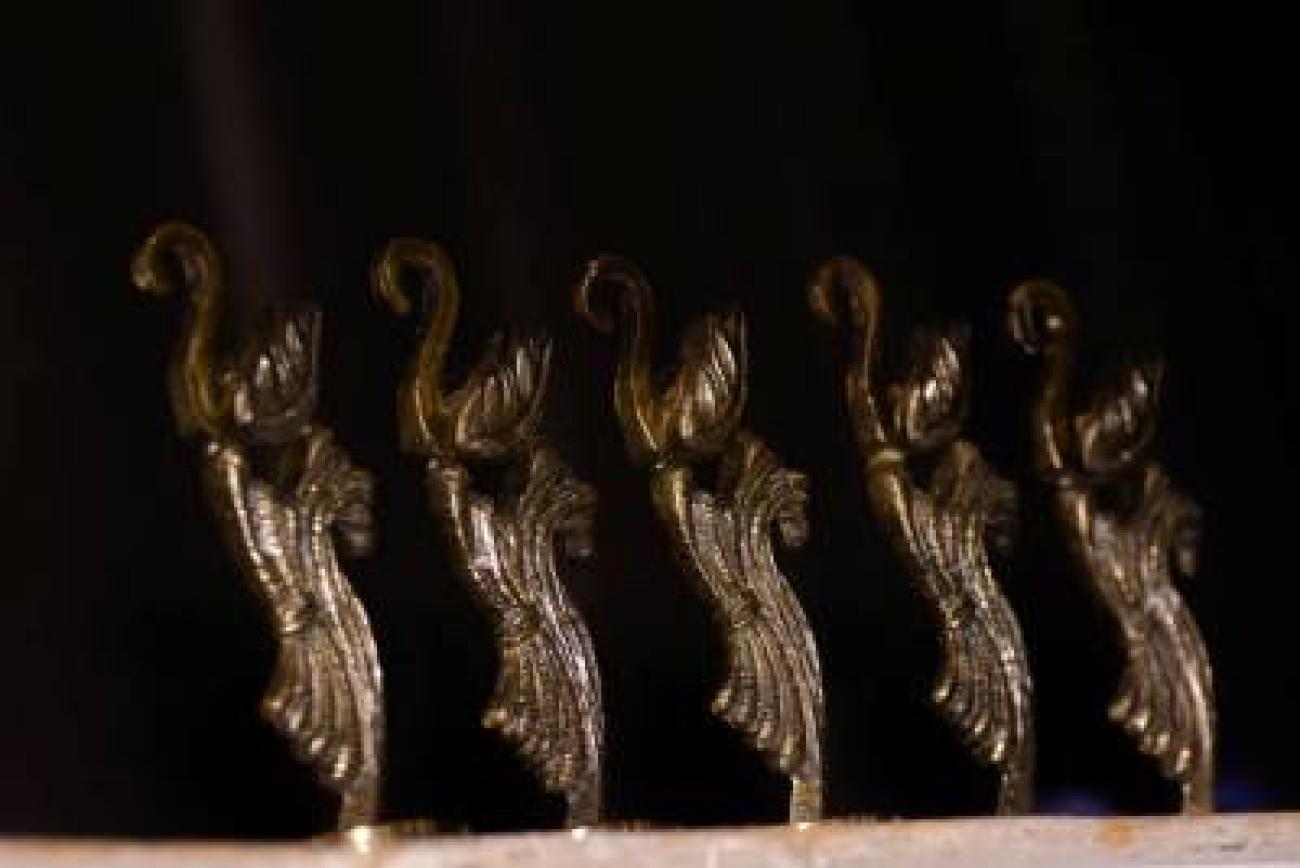Three of the four principal awards went to Lysistrata, a play devoted to ending violence against women and girls.
Art, including theatre, is a powerful tool for raising awareness about violence against women and girls and for changing public perceptions and attitudes towards it. As such, UN Women, in the framework of the UN Joint Programme to Enhance Gender Equality in Georgia (funded by the Government of Sweden), supported the big stage premiere of Lysistrata at the Rustaveli Theatre in 2015. Since then, the play has been included in the regular repertoire of the Rustaveli Theatre and performed on the stage of Kutaisi Theatre.
The play is based on the 411 B.C. Greek comedy by playwright Aristophanes, in which Greek women launch a mission to end the Peloponnesian War between Athens and Sparta by refusing sexual relations with their male partners to force them to negotiate for peace. For the new piece, Georgian playwright Lasha Bugadze continues the ancient story 25 years after the original’s events and reflects on the unequal power relations between women and men.
In the story, Lysistrata and her fellow female warriors have now finally achieved peace and founded a flourishing and progressive city. There is profound peace here, free from violence against women. Beyond the walls of the city, however, the old problems remain in other towns, where women are enslaved and abused. Men are constantly trying to force their way into Lysistrata’s city, but their efforts are in vain as the city’s gate is guarded by Amazons. The daughter of one of Lysistrata’s fellow warriors falls in love with a man, whose mother is a member of the opposition movement to Lysistrata. The opposition believes that man should prevail and woman should surrender to him. The slightly aggressive man seems romantic and is attractive to the daughter, which outrages her mother and her fellows. The opposition movement and the liberal women ask Lysistrata for advice. She gives her blessing to the couple, but after some time passes, the man beats his wife. For the first time in 25 years, a man physically assaults a woman in Lysistrata’s city, which may turn into a great catastrophe as violence is followed bymore violence. “What we feared most is already happening: there is a bully in the city. Have I made a mistake?!” asks Lysistrataas the curtain falls.
The play ends with this open-ended question, leaving the audience with a slight sense of incompleteness and longing for the final resolution of the perpetual dilemma – may there ever be an end to violence against women, is equality between women and men ever achievable, and what will the world be like if it is achieved?
Lysistrata’s award-winning director, David Sakvarelidze, noted that, “Apart from the fact that the performance has gathered outstanding actors, the success of the performance has been conditioned by the fact that it is devoted to a pressing social issue. I am hopeful that the least we have achieved with this performance is that we have given the audience some food for thought.”
Established in 2009, the Duruji Award is the leading Georgian theatre prize created to honour achievements in the development of the country's famed theatre field. Theatre director David Sakvarelidze was honoured for Best Direction for the production, while author Lasha Bugadze was awarded for the literary piece that served as the basis for the play. Actress Nino Kasradze was singled out for the Best Actress award for her part in the staging, leaving only the Best Actor prize unawarded to Lysistrata; it went to Giorgi Gloveli for his role in the local production Duck Hunt. Outside of the main awards, the Culture Ministry also honoured young director Avtandil Diasamidze with the customary Special Prize, designed to enable talented theatre creators to stage new projects.
"Now is not the time to remain complacent or tolerate silence, and the victims of violence should no longer be left alone, face to face with a despot,” Bugadze urged. “We should stop perpetrators together. We should help the Lysistratas.”




